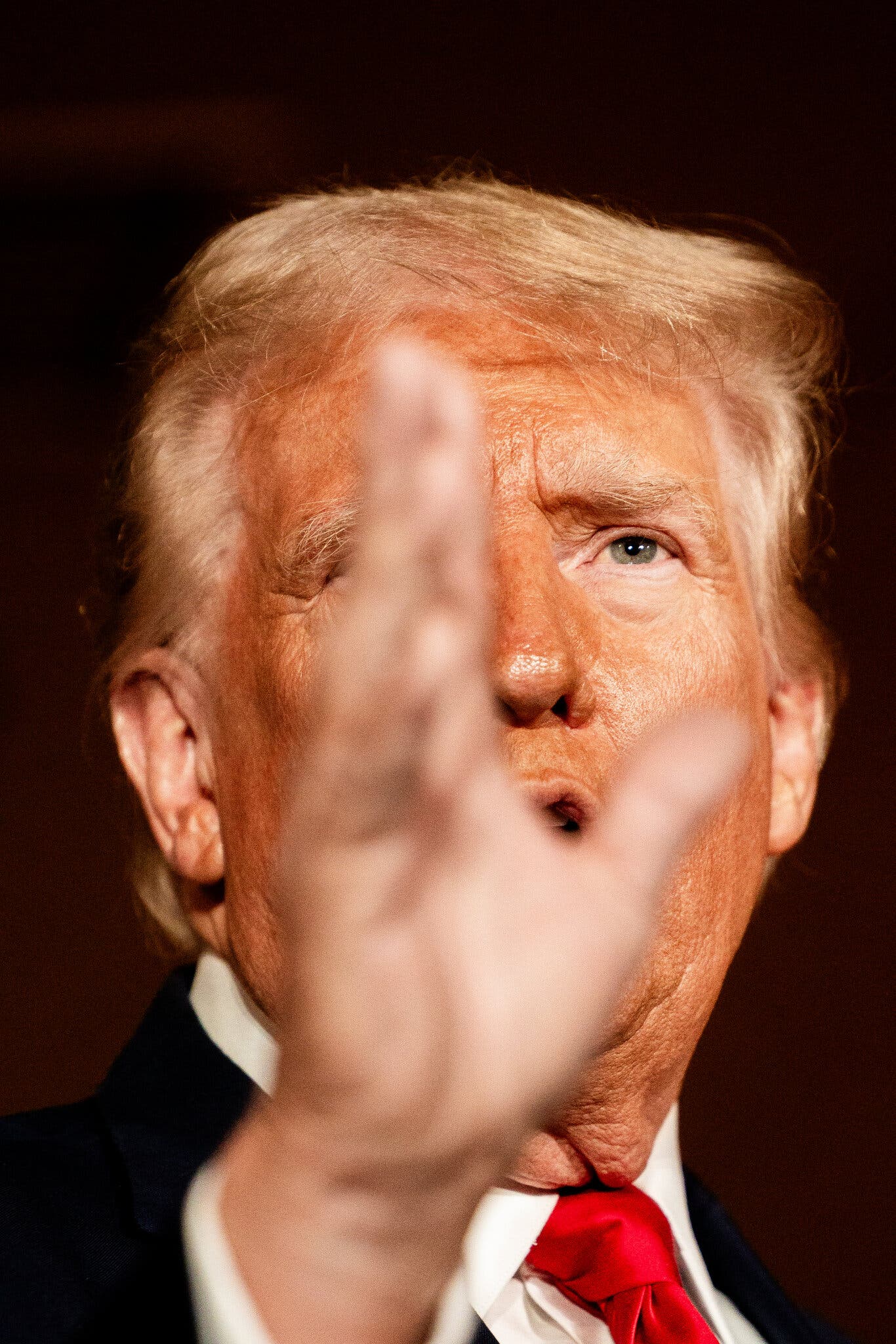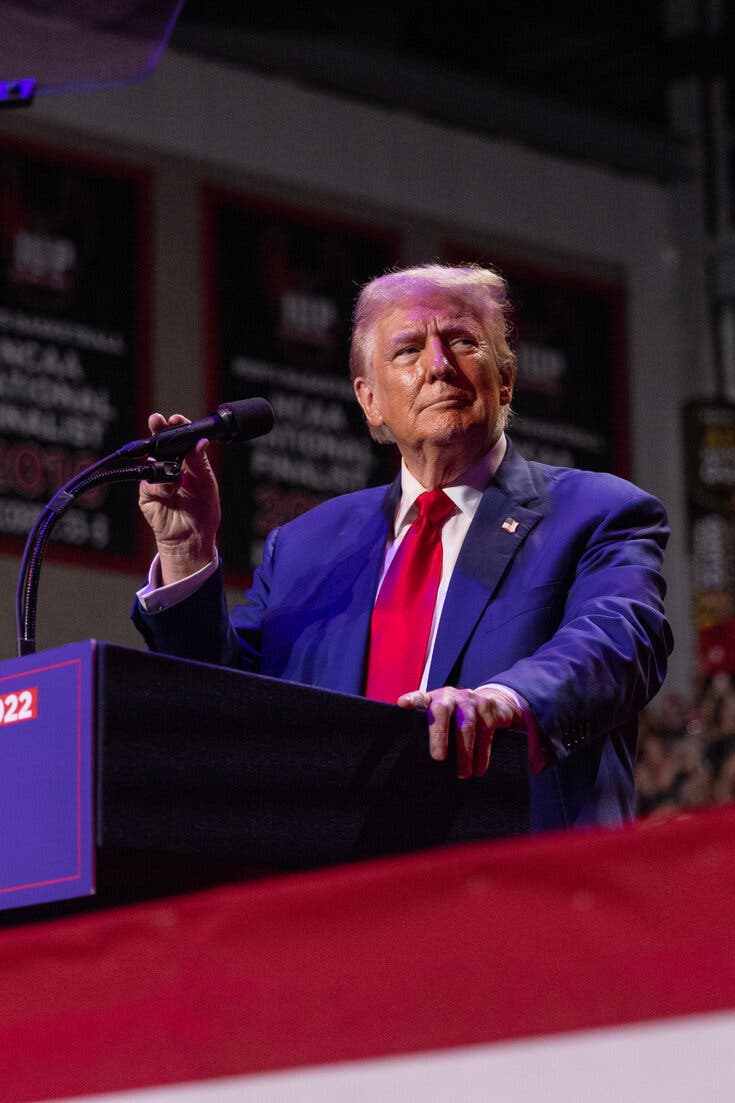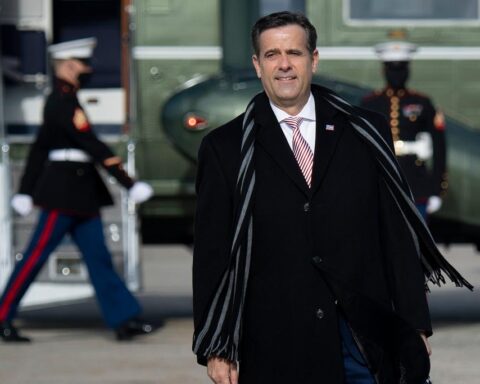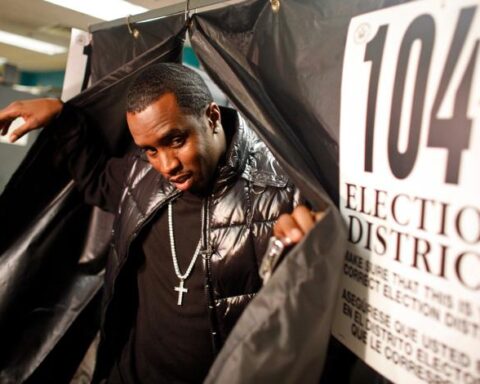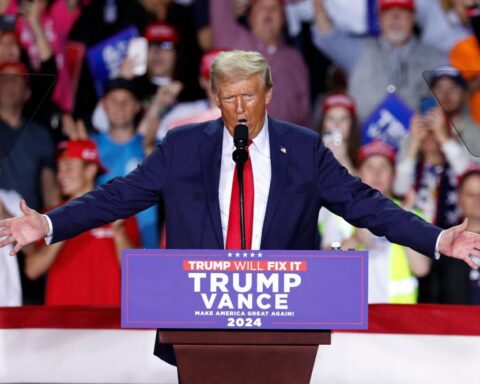During his presidency, Donald Trump sought investigations into political rivals and critics. As he seeks to return to power, a review of his first term reveals how readily he could weaponize the justice system again.
In the spring of 2018, as the investigation into Donald J. Trump’s ties to Russia intensified, the president was enraged by the Justice Department’s refusal to target his political opponents. His frustration culminated in a striking Oval Office scene: Trump told his aides he would prosecute Hillary Clinton and former FBI Director James Comey himself if Attorney General Jeff Sessions did not take action.
Recognizing the peril of a president seeking to personally control the justice system, White House Counsel Donald F. McGahn II stepped in. McGahn offered to write a memo explaining the limits of presidential authority over criminal investigations. This intervention marked the beginning of a broader effort by Trump to weaponize federal agencies against his perceived enemies.
A Pattern of Power Abuse
Over the course of Trump’s presidency, several key figures found themselves in the crosshairs after the president demanded action against them. While some of these demands were public, others were delivered privately, yet they often led to government pressure in the form of investigations or legal challenges. A closer look at ten individuals who were targeted reveals a disturbing pattern: Trump’s expressions of ire were often followed by federal inquiries, even when his top aides advised against such actions.
Among those targeted were political rivals like Hillary Clinton, FBI officials such as James Comey, and even people once close to Trump, including Michael D. Cohen, his former lawyer, and Omarosa Manigault Newman, a former White House communications aide.
In some instances, there were legitimate reasons for the inquiries Trump demanded. However, in many cases, there was no substantial legal basis, and none resulted in a criminal conviction. Yet, the mere threat of federal investigation was enough to cause financial and emotional strain on the individuals involved.
Trump’s Influence on Federal Agencies
While Trump never issued formal orders to pursue these investigations, his repeated public and private signals left no doubt about his desires. His demands did not need to be explicit—his influence over the Department of Justice, the FBI, and other agencies allowed him to exact retribution through indirect means.
His defenders often downplayed these threats as mere “campaign trail bluster.” However, former aides, including John R. Bolton, who served as Trump’s national security adviser, cautioned that Trump should be taken seriously. “When Trump says things like this, he’s serious about it—he constantly voiced the idea, and it’s something he will come back to until it gets done,” Bolton remarked.
The Role of Trump’s Aides
Despite Trump’s determination, some of his closest aides, including McGahn and Chief of Staff John F. Kelly, pushed back against his attempts to wield federal power against his enemies. They repeatedly warned him that targeting political rivals was not only illegal but also deeply un-American. Kelly, in particular, emphasized that weaponizing the IRS, one of Trump’s most frequent ideas, was a tactic seen in authoritarian regimes. He told the president that such moves were immoral, illegal, and ultimately self-destructive.
In response to Trump’s escalating demands, McGahn and his legal team drafted a series of memos in 2018 outlining the limits of presidential power in relation to criminal prosecutions. These memos, smuggled out of the White House by lawyers fearing Trump’s retaliation, became a record of their efforts to curb the president’s impulses.
Trump’s Return to Power?
As Trump campaigns for a second term, he has signaled that, if re-elected, he would assemble a team of loyalists who would carry out his wishes without question. Unlike his first term, where aides like McGahn and Kelly acted as guardrails, Trump appears intent on surrounding himself with individuals more willing to act on his impulses.
The possibility of Trump’s return is underscored by the U.S. Supreme Court’s July 2024 ruling, which granted former presidents broad immunity from prosecution for official acts taken while in office. This legal precedent could embolden Trump, especially given his ongoing grievances about the four indictments—two federal and two state-level—he has faced since leaving office.
Echoes of Authoritarianism
Trump’s repeated calls for investigations into his opponents raise alarm among former staffers and legal experts who see troubling parallels with authoritarian regimes. As his second presidential bid gains momentum, the question remains: will Trump once again use the power of the federal government to go after those who cross him?
For now, the lessons from his first term offer a cautionary tale about the dangers of a leader who seeks to blur the lines between personal vendettas and the rule of law. Trump’s actions in office were not just political rhetoric—they were serious, sustained efforts to undermine democratic norms and turn the mechanisms of government against his critics.
If he succeeds in his quest for a second term, those impulses could return stronger and more unchecked than before.
4o



